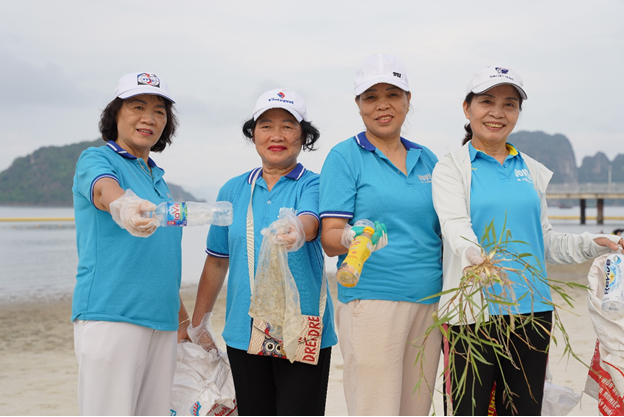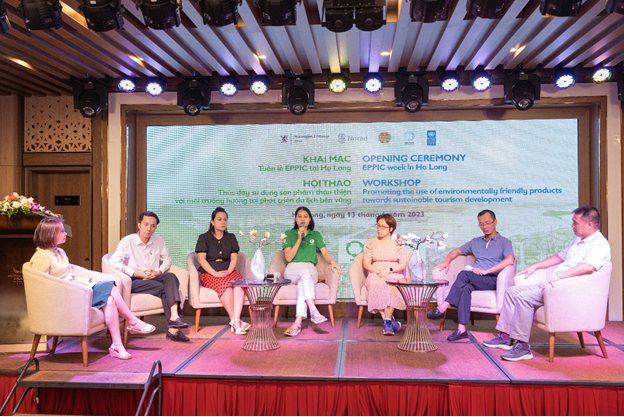Consultations toward INC-2 of a global plastic treaty
Following up the first session of the Intergovernmental Negotiating Committee (INC) in Uruguay in 2022, the INC-2 took place in Paris, France from 29 May to 2 June 2023 with the participation of over 700 delegates from 169 member States and over 900 observers from 700 international organizations, NGOs and media. One of the key outcomes from INC- 2 was developing a zero draft legal text for the treaty based on the discussion of governments ahead of the next round
of negotiation in Kenya in November (INC-3).
Before the INC-2, the Secretariat analyzed and prepared the document from 243 written submissions of member states and other stakeholders. The document contains 2 parts. The first part offers 12 possible core obligations related to virgin plastic, chemicals, plastic products, waste management or alternative products, etc., and different measures intended to support the intergovernmental negotiating committee with two options for legal bidding measures and voluntary measures. The second part focuses on the implementation method and solutions.
At the end of INC-2, participants agreed on submission on issues not discussed at INC-2 by 18 August 2023 for observers and by 19 September 2023 for Member States. These issues can be the principles and scope of the instrument and any potential areas for intersessional work to be organized after INC-3.
The Viet Nam delegation at INC-2 aims to promote the national role in trying to tackle the plastic pollution crisis, harmonize the national action plan with the regional and global policy, enhance the financial capacity, and strengthen the national monitoring and reporting system that was agreed upon member states joining the negotiation of a plastic global treaty. The delegation actively joined forces with other countries to consider all obligations and elements possibly selected for the legal building instrument. The discussion was given based on consideration of the development levels of different countries, current national action plans, the national monitoring and reporting systems, and obligation measures in the region.









